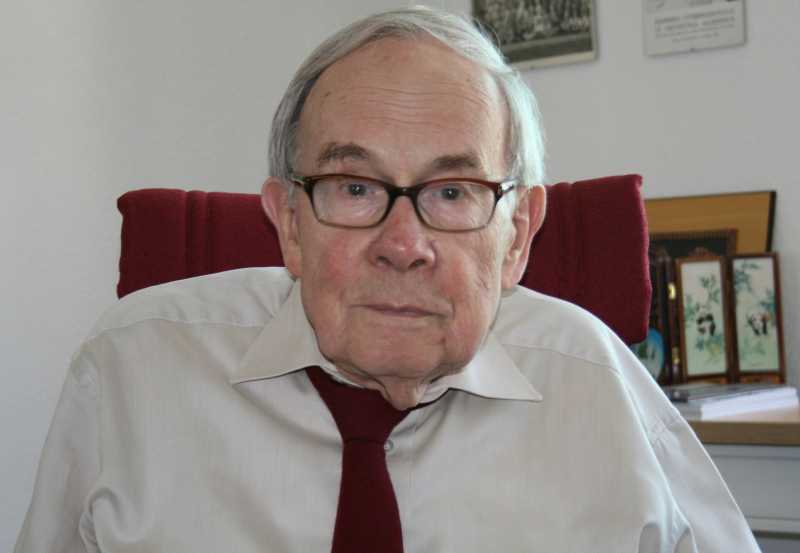In memoriam Friedrich Hirzebruch

Friedrich Hirzebruch, Max Planck Institut für Mathematik, Bonn 2012 (Foto: Thomas Vogt)
Hot off the press: DMV-Jahresbericht (annual report) Vol. 117, Issue 2, June 2015
The historical article of this issue is an obituary for Friedrich Hirzebruch who died in 2012 at the age of 84. The article is written by his alumnus Don Zagier (Bonn). In memoriam of the outstanding mathematician Friedrich Hirzebruch, who served twice as chairman of the German Mathematical Society, we present here the first lines of Don Zagiers touching text:
LIFE AND WORK OF FRIEDRICH HIRZEBRUCH
DON ZAGIER
DON ZAGIER
Abstract. Friedrich Hirzebruch, who died in 2012 at the age of 84, was one of the most important German mathematicians of the twentieth century. In this article we try to give a fairly detailed picture of his life and of his many mathematical achievements, as well as of his role in reshaping German mathematics after the Second World War.
Friedrich Hirzebruch, who passed away on May 27, 2012, at the age of 84, was the outstanding German mathematician of the second half of the twentieth century, not only because of his beautiful and influential discoveries within mathematics itself, but also, and perhaps even more importantly, for his role in reshaping German mathematics and restoring the country's image after the devastations of the Nazi years. The eld of his scientic work can best be summed up as "Topological methods in algebraic geometry," this being both the title of his now classic book and the aptest description of an activity that ranged from the signature and Hirzebruch-Riemann-Roch theorems to the creation of the modern theory of Hilbert modular varieties. Highlights of his activity as a leader and shaper of mathematics inside and outside Germany include his creation of the Arbeitstagung, his presidency of the Deutsche Mathematiker-Vereinigung during two especially critical periods and his later services to the European Mathematical Society and the International Mathematical Union, the founding of the Max Planck Institute for Mathematics in Bonn, and his role in preserving mathematical contacts between the Federal Republic of Germany and the German Democratic Republic and Soviet Union during the Soviet period and later in establishing close mathematical links between Germany and many other countries, notably Japan, Poland and Israel. He was a superb lecturer, teacher, and expositor of mathematics and above all a man whose human qualities were an inspiration and a model for those around him.



